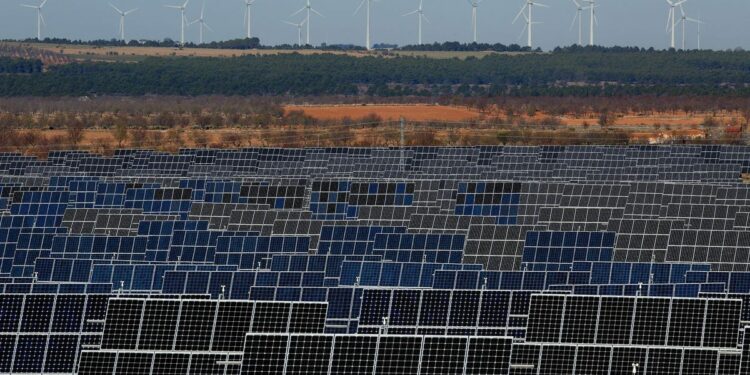In order to avert disastrous climate change, the world must urgently reduce emissions. Limiting warming to 1.5˚ C above pre-industrial levels means reaching net-zero carbon dioxide emissions by mid-century. This goal is only possible with an entirely new energy system: one that is both clean and green, but also accessible and affordable. Earlier this year, the International Energy Agency (IEA) released its pathway to net zero emissions by 2050. IEA’s newest flagship report explores the aggressive actions required to create a sustainable, resilient energy system.
The financial sector has a central role in supporting the low-carbon transition the IEA describes. Finance must rapidly reduce fossil fuel funding, but it must also fund the development of new technologies and promote the global deployment of clean energy. Below are five imperatives for the financial sector to enable a net-zero future.
Say Goodbye to Coal
Per unit of energy, coal produces the most carbon emissions of any fossil fuel. It also releases toxic pollutants that harm ecosystems and human health. However, it remains a bedrock of the global energy system. Without a rapid phase-out of coal, the world will blow through its climate targets. Finance needs to take an active role in accelerating that phase out. The IEA makes clear that no new investments in coal should take place in its net-zero pathway.
However, emissions from coal plants already built will still exceed the remaining carbon budget. As a result, many coal plants need to be retired early. Retirement is a complex effort that brings social, economic, and environmental considerations. According to the IEA, financial institutions can provide the capital to responsibly retire coal plants in ways that lead to emissions reductions, energy access, and economic resiliency.
Stop Financing Fossil Fuel Expansion
Perhaps the most powerful line from the IEA’s initial net-zero report was: “the world needs no new oil and gas developments.” While activists have touted this headline, it requires some explanation. The IEA clarifies that investment in existing oil and gas fields and those already approved for development still occurs in their net-zero pathway. Stopping new exploration means oil and gas production will fall at steady rates.
Key to the IEA’s decarbonization strategy is a rapid and sustained fall in fossil fuel demand, brought about by carbon pricing and investments in clean energy. With falling demand, the declining production of existing fields will meet the needs of a transitioning world. If fossil fuel demand remains high, disruptive price spikes and energy instability may result. Therefore, financial institutions need to do more than just reducing fossil fuel funding, they need to actively promote measures to shift demand away from oil and gas.
Ante Up for Clean Tech
The COVID-19 pandemic saw sharp drops in energy investment. Accelerating the net-zero transition requires clean energy financing not just to return to pre-pandemic levels but to vastly exceed them. A decarbonized energy system needs huge investments in renewables, batteries, upgraded grids, and low-carbon technologies. The IEA estimates that clean energy investments must quadruple by 2030 to around $4 trillion annually. This figure is nearly double the amount governments have pledged to spend on clean energy in their latest climate commitments.
Private capital is equally critical to overhauling power generation, storage, and transmission that will underpin the net-zero economy. The IEA also sees a need to boost financing for energy efficiency technologies and innovations in low-carbon materials. Only a coordinated effort by the public and private sectors will mobilize the financial flows needed to get to net zero.
Support the Transition in Developing Economies
For billions around the world, decarbonization cannot come at the expense of development. Historically, as nations industrialize and standards of living rise, emissions rise too. The planet needs emerging economies to leapfrog over the fossil-fueled growth phase. That jump can only occur if there is sufficient capital to deploy clean energy economically and at scale.
Development finance institutions (DFIs) can be a catalyst for clean energy and low-carbon projects in emerging markets. However, DFIs, governments, and private finance all need to significantly increase their funding of such climate projects. Capital not only enables the early retirement of fossil fuel infrastructure and the deployment of renewables, but it also supports climate resilience. With many communities already feeling the impacts of climate change, adaptation finance is an economic and moral imperative.
Seize the Opportunity
Reaching net-zero by 2050 may be humanity’s greatest challenge. However, the transition to a sustainable and resilient global energy system also will create unprecedented opportunities. From production to distribution, the entire energy value chain will need to transform. As decarbonization takes hold, the growth potential of innovative companies is nearly limitless.
In their net-zero pathway, the IEA estimates the market opportunity for wind turbines, solar panels, lithium-ion batteries, electrolysers and fuel cells at well above $1 trillion annually by 2050. The market for these five technologies alone is comparable to today’s global oil market. The market for low-carbon fuels will also be worth billions.
Many of these clean technologies already exist and need investment to be deployed at scale. Some are at the demonstration phase and need venture capital. Others remain in the labs of brilliant scientists awaiting research funding.
Energy and finance are closely linked. If energy is what powers the global economy, then capital is what powers the energy sector. As a result, climate goals require serious commitments from financial actors. To reach net zero, finance must not only stop funding big emitters, but also must provide the capital to support clean technology expansion and deployment. The firms that most deeply embrace the vibrant low-carbon future will reap tremendous rewards in the years ahead.











